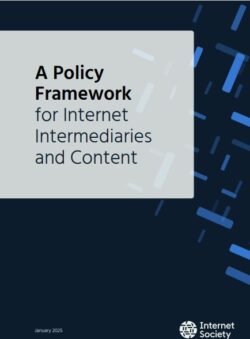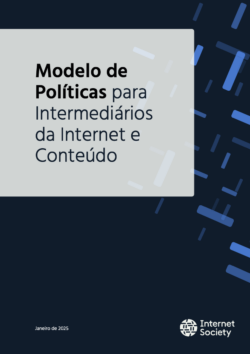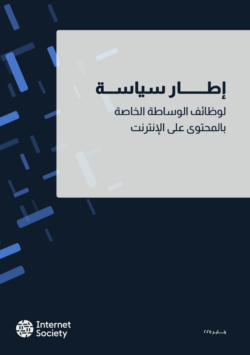Intermediary functions are crucial to the Internet’s existence. This paper provides a framework for understanding Internet intermediary functions and developing policy concerning responsibility for online content without harming individuals’ ability to use the Internet to create content and communicate with each other.
We focus on the functions performed by Internet intermediaries to facilitate online communication, such as transmitting, routing, storing, caching, hosting, securing, curating, and moderating content. This focus recognizes that many intermediaries perform multiple functions that raise differing policy issues and that many types of intermediaries offer fundamentally equivalent functions even though their services may appear quite different.
Our aim in this paper is to help policymakers understand those functions and develop policy relating to them. Well-designed policies can enhance the availability, diversity, security and privacy of individual participation online. However, poorly crafted policies can weaken Internet security, harm competition, restrict online communication, widen the digital divide, and fragment the Internet.
The goal is not to exempt intermediaries from responsibility but to emphasize the critical role of liability protections in enabling individual participation on the Internet. Poorly designed intermediary-focused policies can have detrimental effects on the Internet and communication. Better alternatives, such as existing privacy, consumer protection, and discrimination laws, are often available.
In this paper, we discuss the development of intermediary liability protections and the motivation behind them, beginning with US Section 230, the Brazilian Marco Civil da Internet, and the EU’s E-Commerce Directive and Digital Services Act. We explain why they and similar laws have been crucial for the growth of the Internet and individuals’ ability to participate online.
We also highlight some intermediary-focused policymaking trends, such as notice-and-takedown regimes, upload moderation, and age-specific requirements. We note that these approaches risk harming the Internet by undermining its technical operations and reliability, weakening security and privacy, reducing competition, over-blocking lawful content, and excluding users from participating on the Internet.
We offer several important policymaking principles:
- Conduct an Internet Impact Assessment to understand whether a proposed policy—relating to intermediary functions or more broadly—could have any adverse effect on the Internet and its operations.
- Carefully scope any proposed policy to the specific intermediary function that is causing policy harm. Be alert to potential collateral damage. Avoid affecting an overly broad set of functions and entities.
- Protect intermediary functions from liability for content created by others, including “user-generated content.” Entities providing intermediary functions should be protected from liability for the content created by others that they transmit, receive, host, display, filter, or otherwise handle. This ensures that users can continue to speak and share content online.
- Protect intermediary functions of curating and moderating user-generated content. Entities that host user-generated content have a legitimate right to set the “rules of the road” for their services and should be protected from liability for enforcing their own rules and removing objectionable content.
- To address concerns about online content, policymakers can use existing or new laws focused on privacy and security, non-discrimination, accessibility, human rights, competition, user choice and control, transparency and openness, among others.
We include several “Spotlights” on policy considerations for specific online sectors including social media, federated networks, online gaming, augmented reality/virtual reality, advertising, as well as pay-for-content business models, managing protected speech, copyright, and artificial intelligence (AI).
The Annex at the end of this paper surveys the wide range of intermediary functions that enable or facilitate Internet communications. It provides an extensive listing and description of intermediary functions and includes technical and practical considerations for policymaking as well as policy recommendations for each function.


